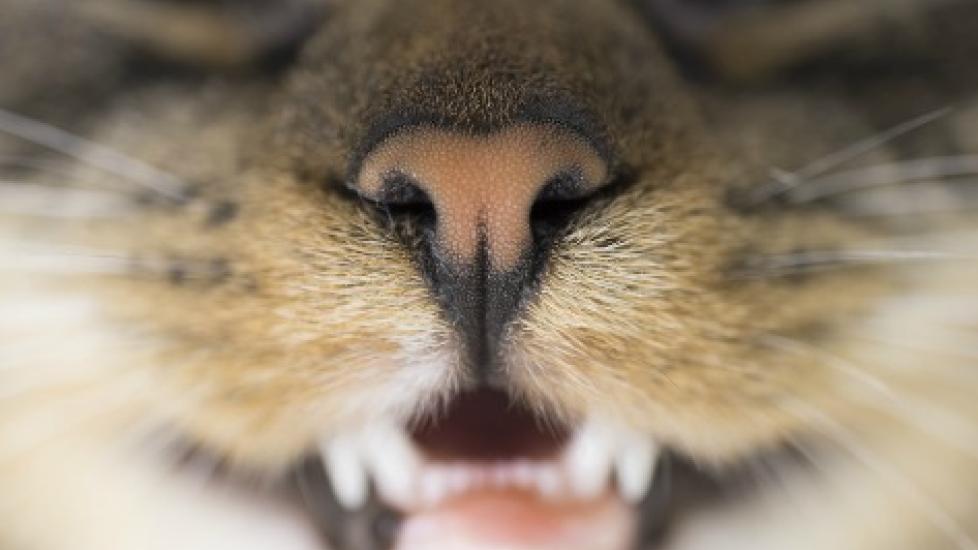 As a pet expert specializing in the care and well-being of our furry companions, I’ve encountered various concerns that pet owners face. One such issue is when your cat starts grinding their teeth. While this behavior might seem innocuous at first glance, it can be indicative of underlying health problems or stressors within the feline’s environment. In this article, we delve into the intricacies of cat teeth grinding—its causes, signs to look out for, potential risks, and what you as an owner can do to help alleviate these issues.
As a pet expert specializing in the care and well-being of our furry companions, I’ve encountered various concerns that pet owners face. One such issue is when your cat starts grinding their teeth. While this behavior might seem innocuous at first glance, it can be indicative of underlying health problems or stressors within the feline’s environment. In this article, we delve into the intricacies of cat teeth grinding—its causes, signs to look out for, potential risks, and what you as an owner can do to help alleviate these issues.
Understanding Cat Teeth Grinding
Teeth grinding, also known as bruxism, occurs when a cat clenches its jaw tightly together with forceful movements, often resulting in audible clicking sounds. This behavior may happen during sleep or while awake, and it’s crucial to recognize the signs early on. Common indicators include excessive salivation, drooling, difficulty chewing food, and noticeable wear patterns on the cat’s molars. It’s important to note that not all instances of teeth grinding are created equal; some cats may grind their teeth due to play or excitement, which isn’t typically cause for concern unless it becomes frequent or severe.
Potential Causes of Cat Teeth Grinding:
- Dental Issues: Poor dental hygiene or infections can lead to discomfort, triggering involuntary attempts by the body to ease pain through muscle contractions around the mouth area.
- Stress & Anxiety: Changes in routine, new pets or people in the home, loud noises, or even certain types of bedding materials can induce anxiety, which may manifest as teeth grinding.
- Pain/Discomfort: Conditions like arthritis, hip dysplasia, or other joint pains can cause discomfort that leads to involuntary muscle spasms around the jaw.
- Nutritional Deficiencies: Lack of essential vitamins and minerals in a cat’s diet could contribute to oral health issues, potentially leading to bruxism.
- Medical Conditions: Certain medical conditions, including hyperthyroidism, seizures, or neurological disorders, have been associated with abnormal motor functions, including teeth grinding.
Risks Associated with Cat Teeth Grinding:
Continual tooth damage from grinding can lead to enamel erosion, exposed pulp chambers, fractured roots, and eventual loss of affected teeth. Additionally, the constant pressure exerted against the jaws and facial muscles can result in pain, inflammation, and possible injury if left untreated.
Prevention and Management Strategies:
If you suspect your cat has a problem with teeth grinding, take them to see a veterinarian promptly for proper diagnosis and treatment. Here are some steps you can take to reduce incidences of bruxism:
- Regular Veterinary Checkups: Schedule regular checkups where your vet will examine your cat’s teeth and gums for any signs of disease or decay. Preventative treatments like professional cleaning can keep dental health in top condition.
- Environmental Enrichment: Provide plenty of toys, scratching posts, perches, and hiding spots to reduce overall stress levels in your cat’s life. A stimulating environment helps prevent boredom and anxiety.
- Diet Modification: Ensure your cat eats a balanced diet rich in calcium and phosphorus to support strong bones and teeth. Wet foods can be beneficial because they encourage slower eating and promote better hydration.
- Pain Relief Measures: If there’s an underlying source of pain contributing to the grinding (like arthritis), discuss non-steroidal anti-inflammatory drugs (NSAIDs) with your vet under strict veterinary guidance.
- Behavioral Interventions: For stress-related cases, consider consulting with a feline behavior specialist who can offer strategies tailored to your specific situation.
Remember, every cat is unique, and what works for one household might not work for another. By staying vigilant about changes in your cat’s behavior and maintaining open communication with professionals, you can ensure the best quality of life for your beloved companion. Keep an eye out for those telltale signs of distress so that you can address any issues before they escalate further.
